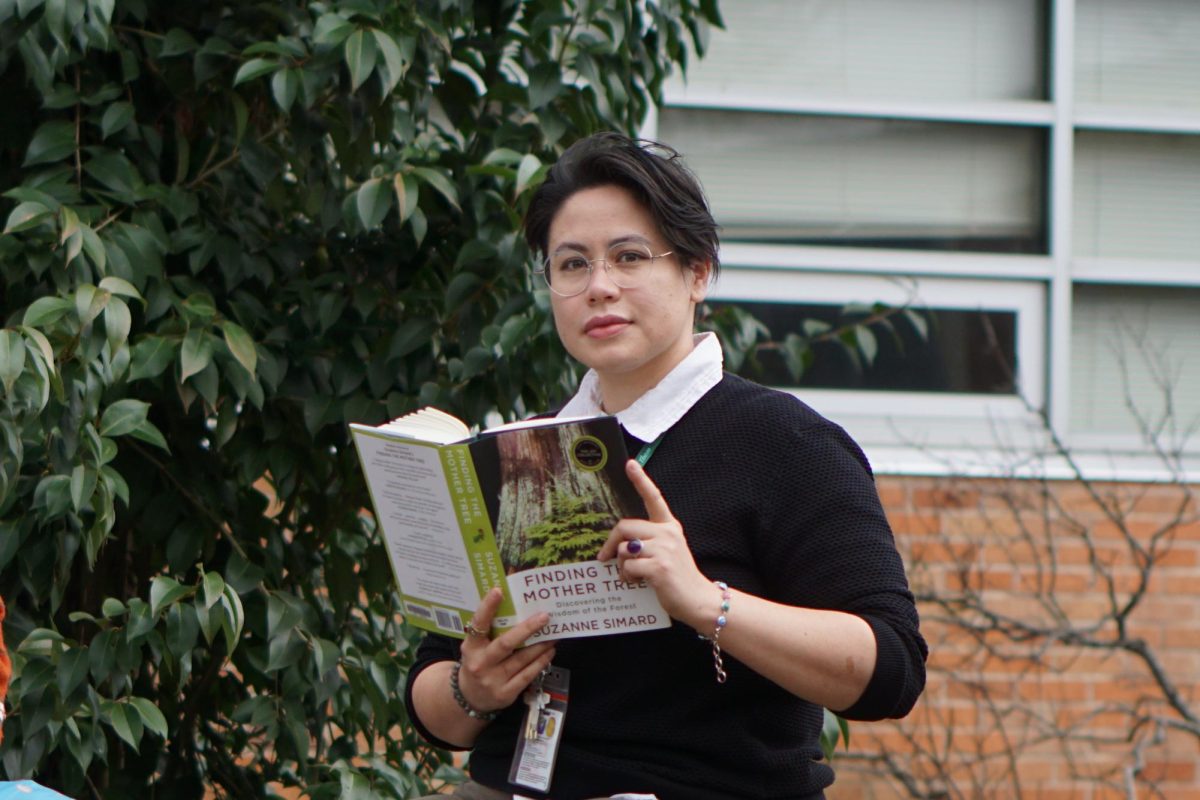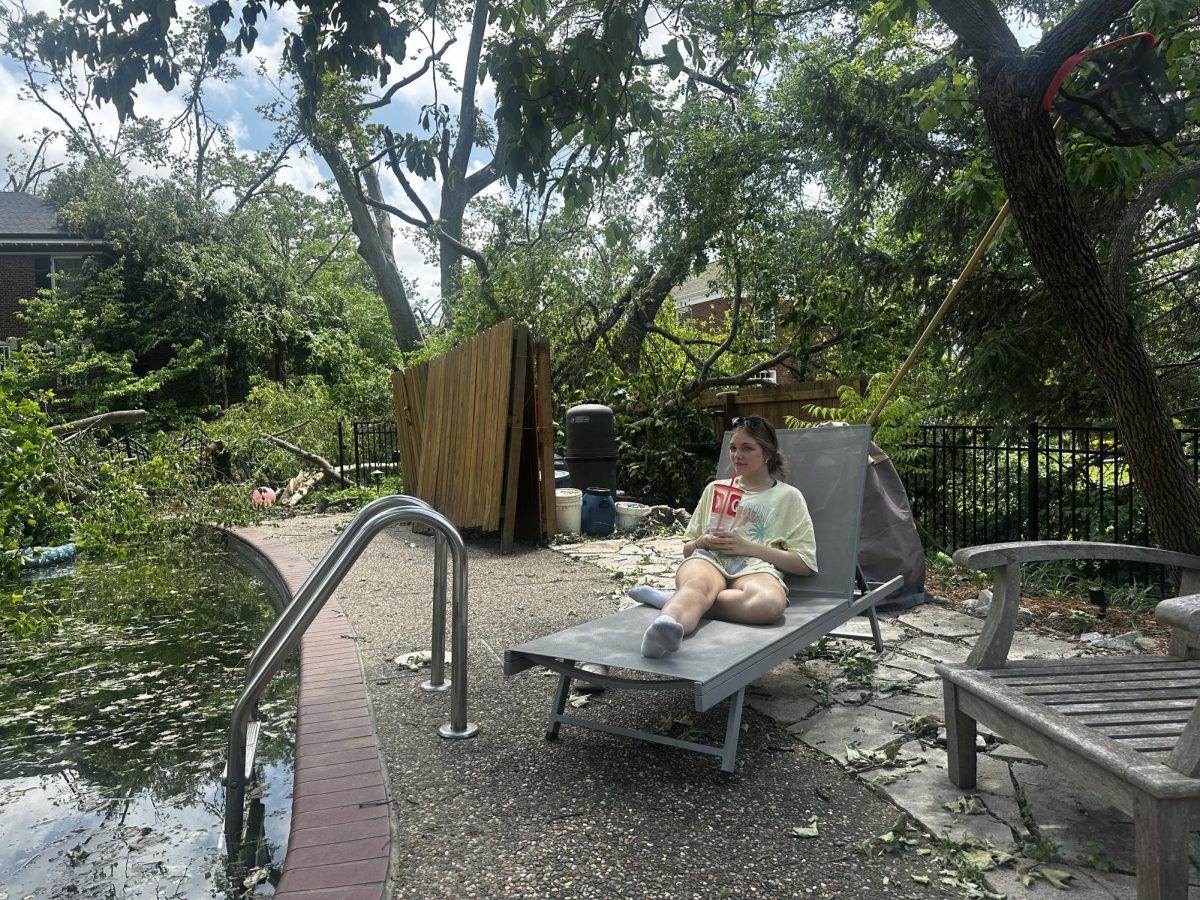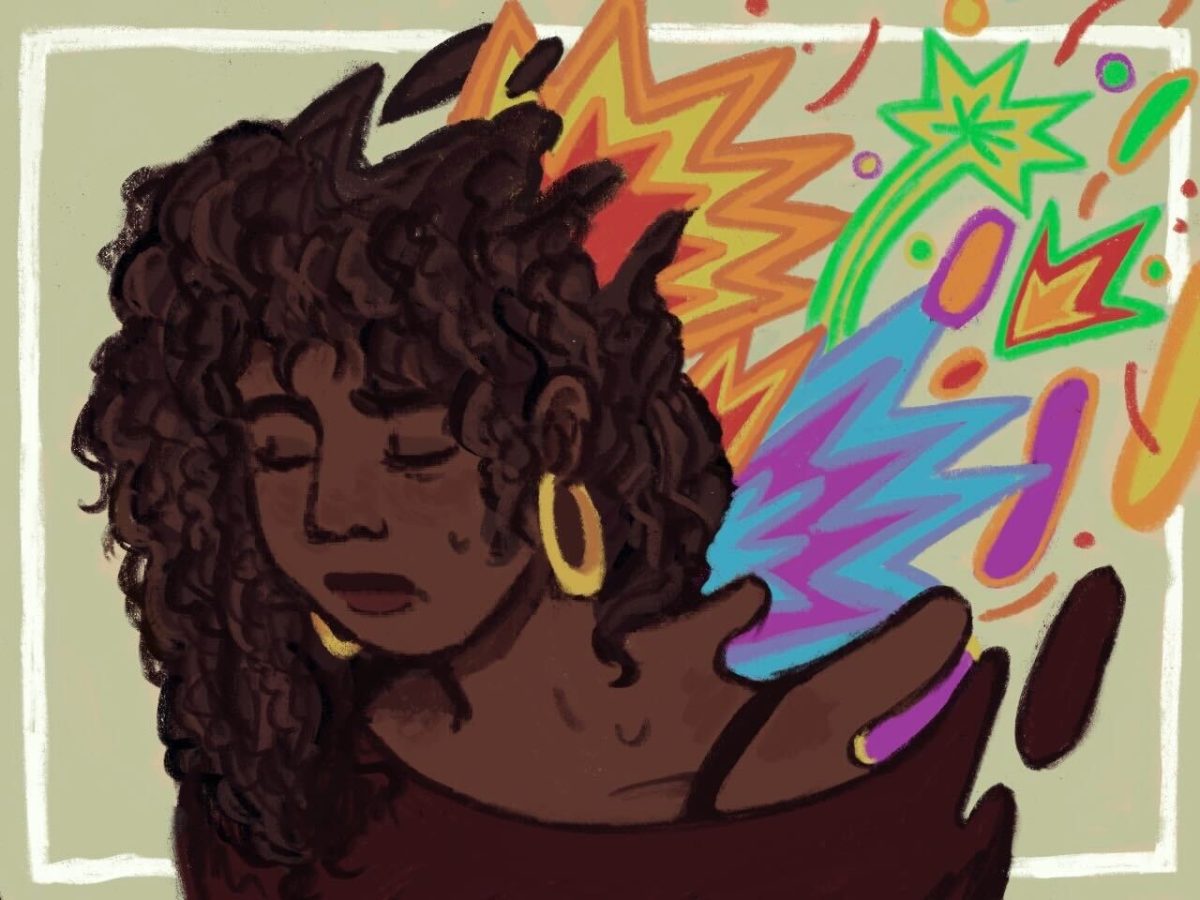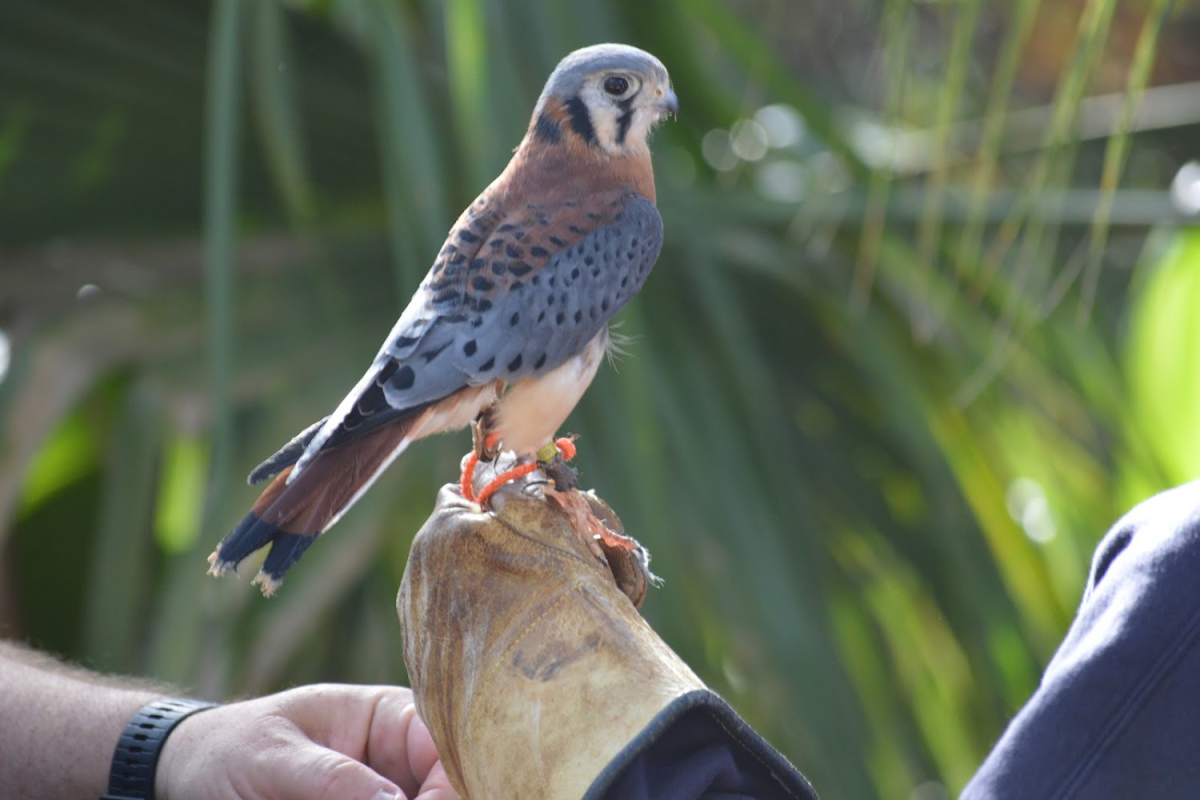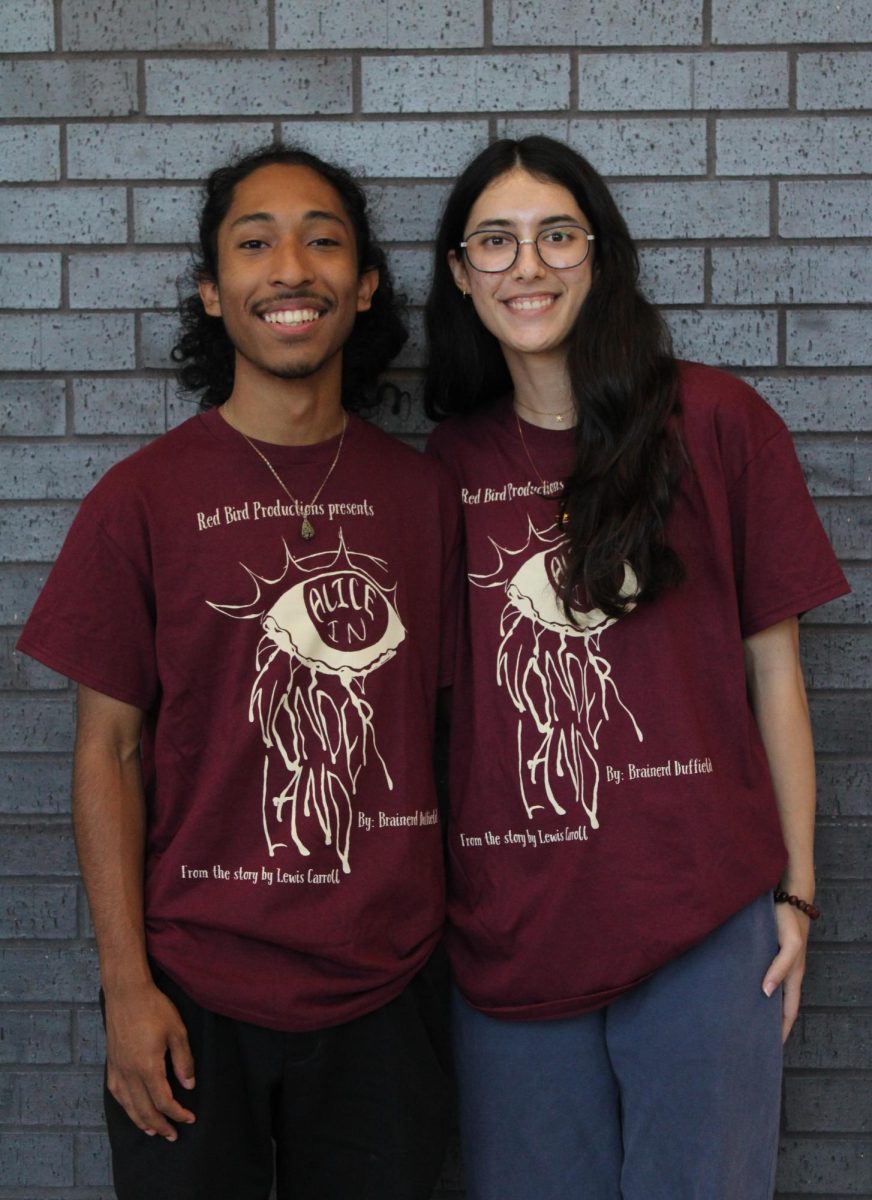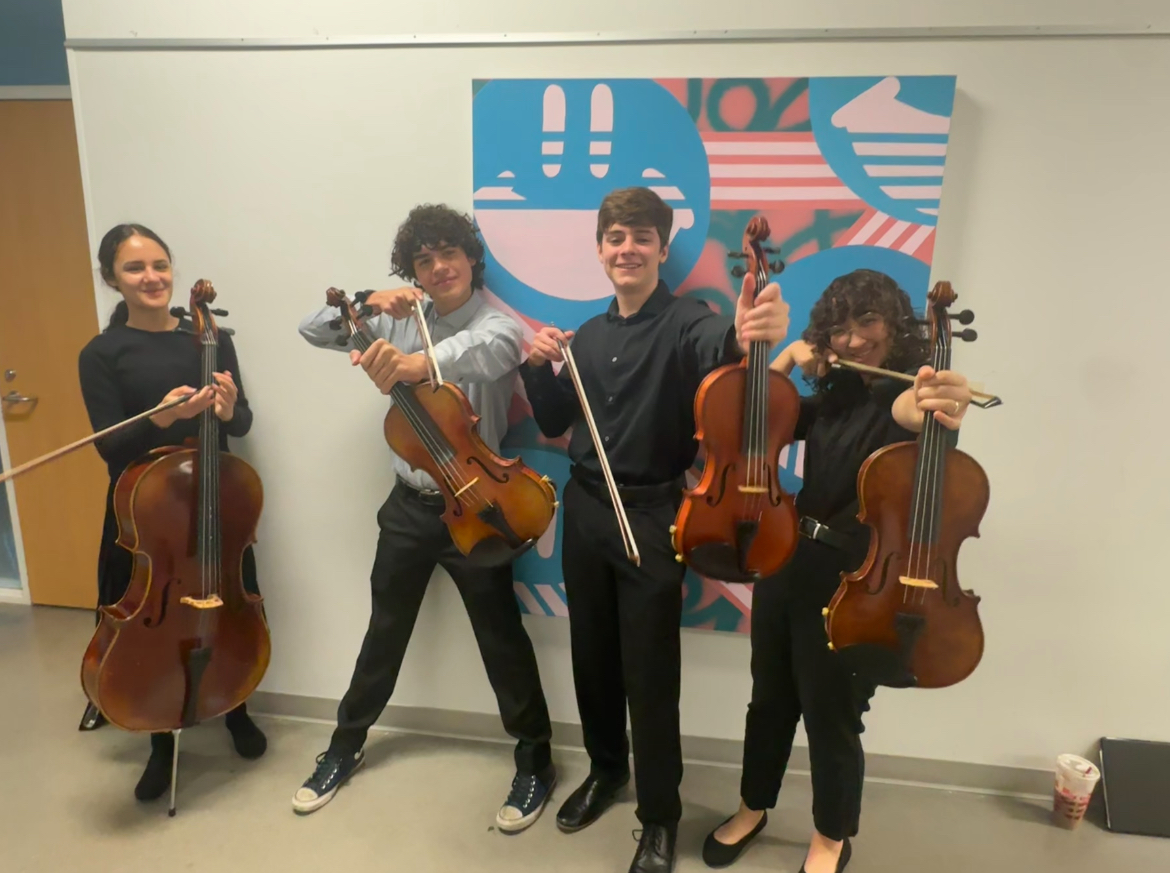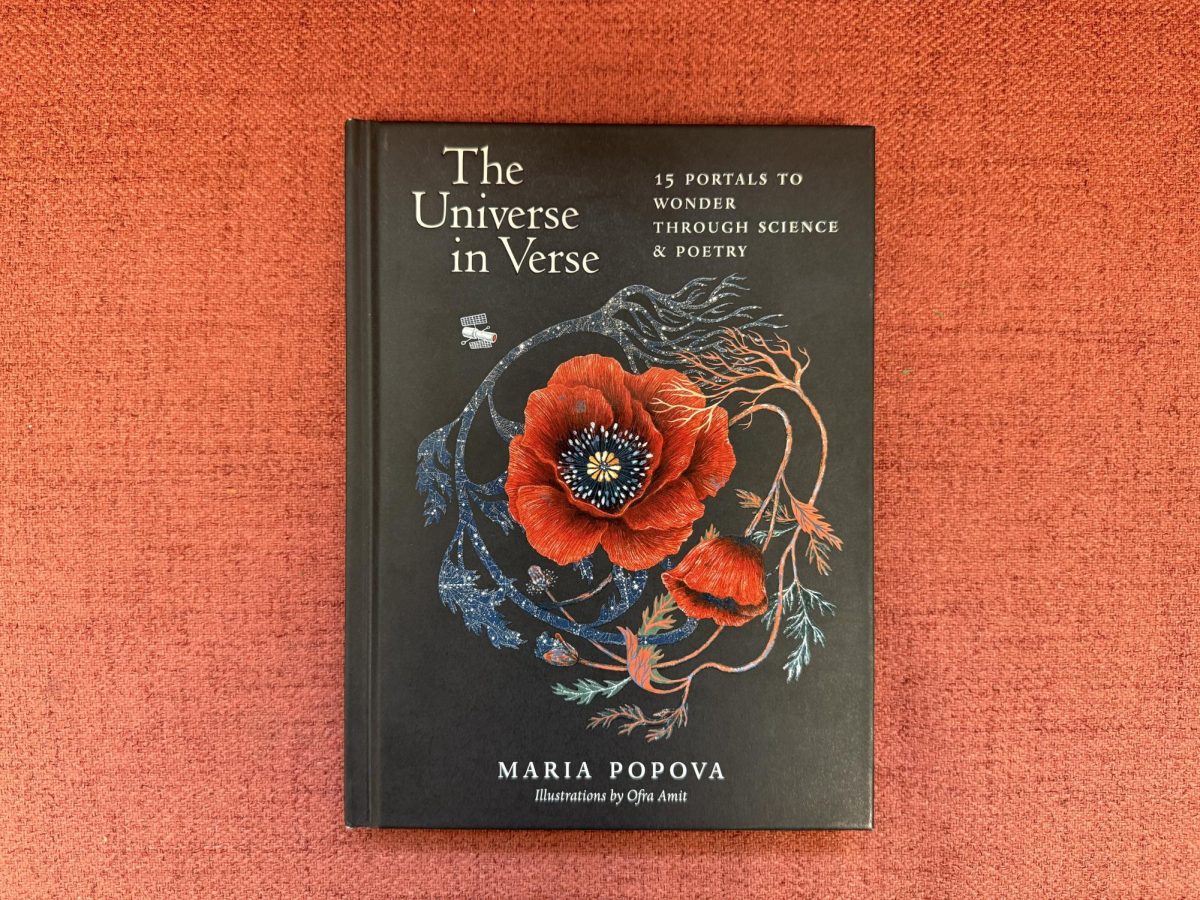Poetry speaks to time and to the existentialist views of our mortality. Oftentimes, poetry subverts and affirms philosophical messages; it addresses the intimate and vulnerable questions of who we are as human beings. Although poetry is often rooted in personal experiences, it also stems from our connection to the natural world around us. Science can add to this art form — there is beauty in the cosmos, in our earth and in what we cannot see.
It is so incredibly human to wonder about the possibilities of life and to question scientific mysteries that are still left unanswered. “The Universe in Verse,” a 2024 poetry anthology edited by Maria Popova, perfectly encapsulates these themes. Popova sections her anthology into categories that range from diverse and contemplative subjects such as “Entropy and the Art of Alternate Endings” to “Radioactivity and the Mystery of Matter.” Each section contains brief essays written by Popova, beautifully intricate illustrations by Ofra Amit and snippets of poetry by Edna St. Vincent Millay, Maya Angelou, Sylvia Plath and several other influential poets.
Popova is a Bulgarian-American essayist, poet and author. Her blog, The Marginalian (formerly known as Brain Pickings), focuses on the search for meaning in daily life. Outside of The Marginalian, she has written three books: “Figuring,” “ The Snail with the Right Heart” and “The Universe in Verse.“
However, “The Universe in Verse” is more than just a poetry collection. It originally starred as an annual charitable event in 2017 to celebrate science and innovation, allowing poets to gather and read scientific writing about all things related to the physical and natural world. It was last held in April 2024 at the Waterloo Greenway Conservancy in Austin, Texas. All ticketing proceeds for the event go towards a future Universe in Verse fund at The Academy of American Poets.
What surprised me about “The Universe in Verse” is that Popova frames her anthology with the concept of singularities — the scientific term for the center of black holes — both at the book’s beginning and end. This structure metaphorically places the reader at the universe’s birth while simultaneously confronting its demise. Popova draws a direct link between singularities and the human mind, emphasizing the worlds around and within us. She points out how our relentless pursuit of the unknown has persisted for years, often at the expense of our planet. The Big Bang is just one example of a singularity our human mind cannot fully comprehend: how life began and how it will end.
Philosophical whims and endeavors such as these fill the anthology’s pages, whether from Popova’s voice or the captivating, intrinsic beauty of poetry, spanning from “[Bloom]” by Emily Dickinson to “We Are Listening” by Diane Ackerman. The poems are interwoven with scientific milestones and discoveries including the Voyager missions and the search for extraterrestrial life. However, the collection covers more than just these achievements themselves: Popova’s essays dive into the humanity beyond the scientific mind. She explores the psychology behind our inherent desire for discovery, the fragility of existence and what it means to search for truth.
In “Flowers and the Birth of Ecology,” she reflects on the unlikely emergence of flowers during the Cretaceous era, describing how their impact on Earth led to the evolution of fruits and, indirectly, a role in the rise of mammals. This isn’t just a statement: there’s something to learn behind these miniature anecdotes, something that provides metaphors for daily life. The beauty in Popova’s anthology does not just lie in its whimsical poetry and thought-provoking essays, but in how the readers interpret it.
The book is relatively short — only around 95 pages. Since it is structured in a way that constantly changes topics, I was actively engaged throughout its entirety. Yet because it contains such deep themes, there are a few moments where I was left confused and wondering.
It’s important to note that Popova abstractly mentions topics like entropy, dark matter and the idea of infinity, which are snippets of larger scientific ideas. Although these themes are presented to readers in an explanatory way, it’s impossible to understand the full scope of the scientific scenarios unless one has mastered the subject.
Despite this fact, “The Universe in Verse” is a wonderful, thought-provoking poetry collection that leads one to care more deeply about the world around them. For all who are innately curious, the anthology offers a moment of repose, detailing one of the beauty of science through a unique and refreshing lens. I highly recommend this book to poetry and science lovers alike and to all who wonder about the questions that this universe holds.
This story was originally published on The Oracle on February 11, 2025.



